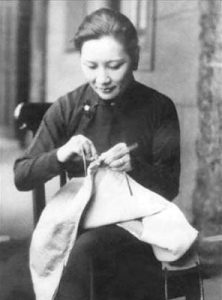12.2.2 Benevolent Government
Logan Masilamani
This leads us to Confucius’s advocacy for the concept of benevolence and benevolent government. He defines “benevolence” in many ways, but the most famous definition states the need “to return to the observance of the rites through overcoming” (Analects 12:1). This is again a reference to overlooking the needs of the individual in favor of the needs of the collective.
Thus, the individual ethical value of goodness creates a commonwealth that produces collective good. As a result, there is benevolence on the part of both the governed and the government. The nature of this tenet is highly important, as it is the foundation of Confucianism and its implications for society. A good and benevolent society fosters mutual trust between the individual and government.
Like the Greek philosophers, Confucius had to grapple with the issue of good governance and what was its role. His answer was the concept of benevolence. The point of departure from the Greeks was that Confucius believed that both the governed and the government should have the same type of morals and/or ethics. No special class was born to lead. The government comes from the people. The regimented Greek categories of rulers and the ruled are not present in Confucianism. Benevolence is not only the moral relationship of the family, but also the political relationships among society. Benevolence emphasized that in any social structure people should love others from the bottom of their hearts instead of relying on external force.

The teachings of Confucius regarding the virtue of benevolence influenced many Eastern and Western philosophers. Confucianism became a source of inspiration particularly among the philosophers of the Enlightenment (e.g., Voltaire) and the Chinese Hui Muslims. It also influenced modern Chinese movements such as the New Life Movement as well as martial arts culture in China.
Confucius also taught that cultivating benevolence helps when facing hardship and distress, e.g., living in material poverty for a long time. Similarly, people who do not cultivate benevolence cannot achieve a peaceful life for a long time. On the other hand, those who are guided by benevolence regard it as the greatest source of happiness in life. According to Confucius teachings, a wise person views benevolence as the most beneficial life norm.
Media Attributions
- Soong May-ling stitching uniform for soldiers © unknown is licensed under a Public Domain license

